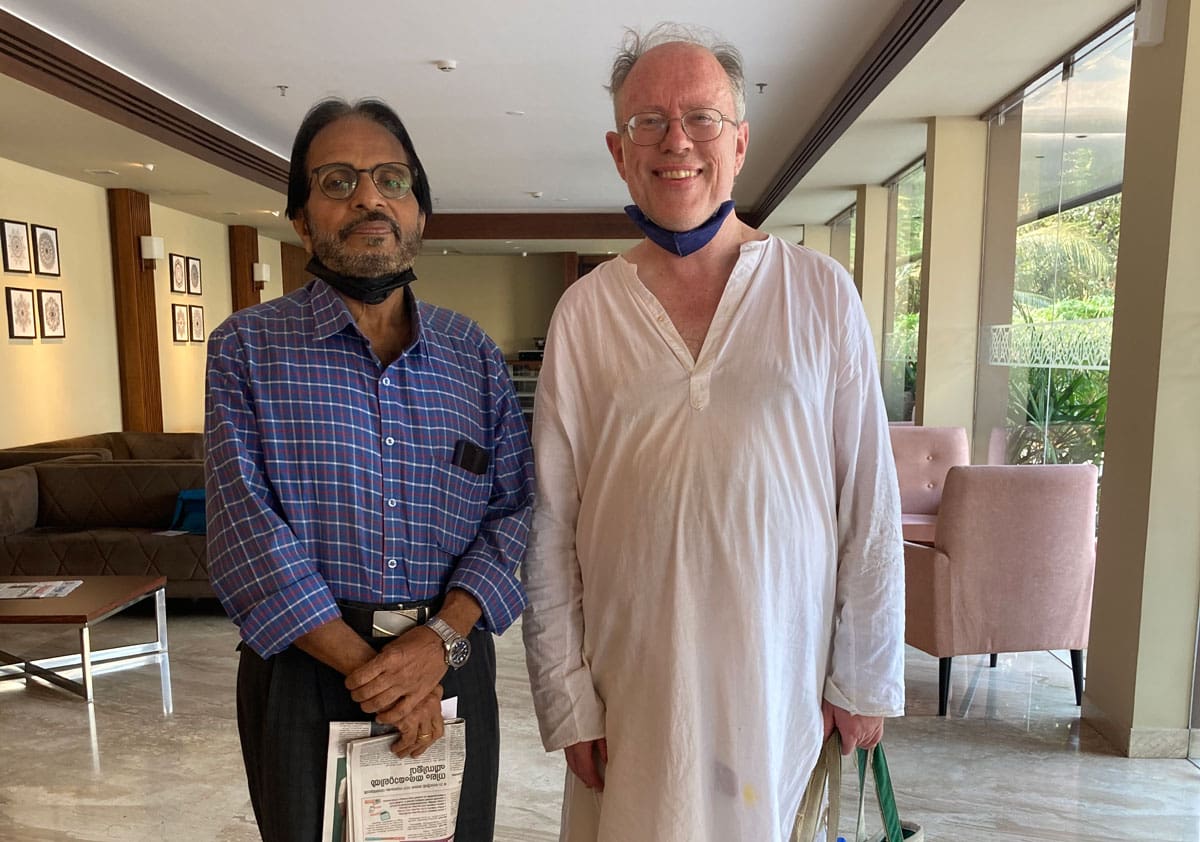UA Little Rock Professor Takes Part in Rare Indian Festival

Dr. Rolf Groesbeck, a professor of music history and ethnomusicology, traveled to India last April to participate in Perumkaliyattam of Chamundi Kottam, a rare festival that was last celebrated in the area 45 years ago.
Perumkaliyattam is a festival of several performances of Teyyam, a Hindu ritual indigenous to Kerala, a state in southwest coastal India. Teyyam is a popular ritual form of worship where dancers, decorated with heavy face-painting, headgear, and costumes, are considered embodiments of a deity.
As part of his research, Groesbeck has previously learned to perform a related Kerala musical tradition that accompanies dance drama and the rituals of high-caste temples. In 2022, he contributed a foreword to a book on Teyyam by Kerala arts scholar Saji Madapat, entitled “Teyyam: The Gods of the God’s Own Country.”
“Saji was closely connected to the organizers of this festival, and they asked me to attend,” Groesbeck said. “I was there to be a witness essentially. I interviewed some of the musicians and people associated with the temple committees. The Perumkaliyattam festival is a very unusual event, and they wanted the perspectives of a wide variety of people who attended.”
Groesbeck also contributed an essay to the souvenir book that accompanied the festival and has been asked to contribute a chapter in an upcoming book that documents Perumkaliyattam.
“In each Teyyam, a ritual specialist undergoes a series of acts such as fasting, donning of headdress, costume, and makeup, which enable a god or goddess to possess him and take over his body,” Groesbeck said. “He then listens to a song, accompanied by drumming and performance of an oboe-like instrument (kuzhal), which recites the life and achievements of the god/goddess. This leads him to a dance in which he further embodies the god/goddess, often accompanied by extraordinary visual effects. Afterwards, the Teyyam gives blessings and counsel to its devotees.”
During Perumkaliyattam, performances enacting 39 different teyyams are enacted by different ritual specialists during the five-day, non-stop festival.
Groesbeck said that the atmosphere of the festival is hard to describe, but “you feel as if you are in the presence of something greater than yourself.”
“One of the performers walked on hot coals over a fire, but he wasn’t aware of anything at all,” Groesbeck said. “All he notices is that he is in the presence of a god. The festival is visually extraordinary. Some of the costumes go up to 25 feet in the air. And the drum, the Chenda, is really striking. It’s an extraordinarily high-pitched, sharp sound. If you are anywhere within the vicinity of the village, you can hear these drums. It’s one of the most extraordinary musical experiences I’ve ever seen.”
